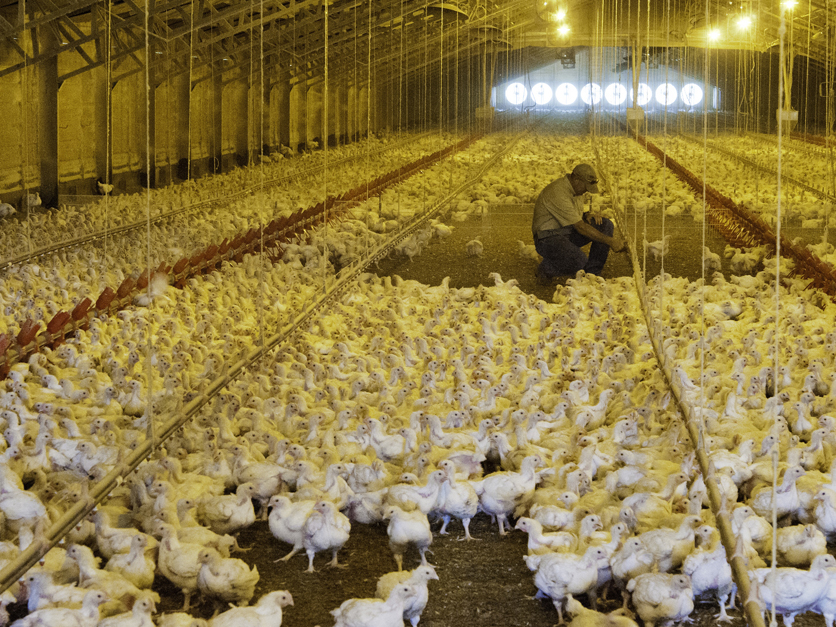A new rule is designed to give packers and producers clarity on what constitutes “undue or unreasonable preference” in the meat sector, but some already say it will need an update under the Biden administration.
On Thursday, the Agriculture Department rolled out a final rule to outline what it considers unfair treatment of producers under the Packers and Stockyards Act. The update is the latest in a farm policy battle that has seen its twists and turns since the passage of the 2008 farm bill.
Under the final rule, USDA declares it “unlawful for any packer, swine contractor, or live poultry dealer to either make or give any undue or unreasonable preference or advantage to any particular person or locality in any respect.” Four specific criteria will be used to determine whether a practice is unfair, including whether the activity cannot be justified on the basis of cost savings, meeting a competitor’s prices, meeting a competitor's terms, or as a “reasonable business decision.”
“Disparate contract terms are not undue or unreasonable just because the terms are not identical,” USDA said in the final rule. “Some disparities in contract terms can be attributed to reasonable business negotiations between contracting parties.”
The rule cited specifics like transportation costs and delivery times as evidence of factors that might not be considered undue preference, but noted price premiums “offered to one person or locality but not offered to other persons or localities similarly situated could constitute a violation of the Act.”
The final rule mostly mirrors a January proposal aside from removing language about those reasonable businesses decisions that might be customary in the industry. Opponents to that language said it was those very customary industry practices the rule was supposed to change.
Aaron Shier, senior government relations representative for the National Farmers Union, told Agri-Pulse that the lack of clarity on exactly what some of those “reasonable business decisions” that might be exempted are one of several issues the organization has with the rule.
Interested in more coverage and insights? Receive a free month of Agri-Pulse.
“It’s not only the lack of clarification there, although that is difficult,” he said. “I think broadly, the framework that’s outlined here really appears to NFU to tilt toward protecting packers and integrators and risks harming farmers and ranchers.”
Thursday’s rule is the continuation of a lengthy battle over the terms of the packer and producer relationship. In 2008, farm bill language directed USDA to outline the terms of unfair business practices in contract livestock production, but appropriations riders blocked USDA from finalizing that language until the tail end of the Obama administration.
In 2016, USDA rolled out its Farmer Fair Practices Rules to correct what it called an “overly broad” interpretation of the law. At the time, Ag Secretary Tom Vilsack called the previous regime – which he said required proof of harm to an entire industry rather than an individual – was “just an unreasonably high burden for anyone to have to meet.”
But in 2017, the Trump administration withdrew the rule, sparking a furious reaction from Sen. Chuck Grassley, R-Iowa, who said he had “violent opposition” to that decision.
“Everybody thinks draining the swamp is firing a whole bunch of congressmen and a whole bunch of bureaucrats; it’s changing the culture of the bureaucracy,” he said at the time. “This is a perfect example of a swamp that’s being refilled by withdrawing these rules.”
In defending the decision, Ag Secretary Sonny Perdue said in 2017 the withdrawn Obama administration rule would result in “unnecessary and unproductive litigation.”
In a statement, National Pork Producers Council Assistant Vice President and General Counsel Michael Formica praised the move.
“We are happy that this 12-year saga has come to a conclusion and ends this cycle of regulatory uncertainty," he said. "We are supportive of any rules that recognize the right of farmers to freely enter into contracts of their choosing.”
The announcement was widely panned by organizations that were also critical of the January proposal. Rural Advancement Foundation International-USA Executive Director Edna Rodriguez said USDA had “failed in its duty to protect this nation’s livestock producers” in the rule.
“Notably absent from the final Undue Preference rule are provisions to prevent retaliation against producers on the basis of race, communication with elected officials, or participation in producer associations,” RAFI-USA noted in a press release.
“Rather, this rule allows competing corporations to match competitor’s prices or terms, or make a ‘reasonable business decision’ as defined by the company itself. Even when asked to define what is ‘reasonable’ the Agency chose not to.”
Eric Deeble, policy director for the National Sustainable Agriculture Coalition, offered a thought shared by several other progressive ag groups: That this rule should be atop the list of priorities for President-elect Joe Biden and Tom Vilsack, whom Biden has picked to serve another stint as Ag Secretary.
“We are counting on the new incoming Biden-Harris Administration and the incoming Secretary of Agriculture to not only rescind the Trump Administration rule, but to also bring back all of the ‘Farmer Fair Practices Rules’ and ensure that those previous rules are improved upon,” Deeble said.
For more news, go to www.Agri-Pulse.com.


